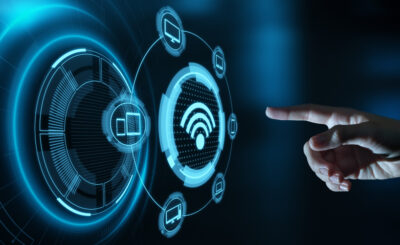Technology has successfully invaded every aspect of our life. All areas of human activity have been influenced in one way or another by technology. So, the same goes for the healthcare sector. In fact, the latter has seen its share of digital revolution in many developed economies, and the use of mobile application software is one of the latest trends in this industry, which is quickly becoming a critical aspect of service delivery. medical services. Therefore, it is necessary to reflect on the impacts of this development and the prospects.
Table of Contents
Why Mobile Applications?
The digitization of the healthcare sector began many years ago. Indeed, the various technological adoptions in this sector have been successful. Hence, this is one of the reasons why users have adopted the use of mobile apps in the healthcare industry and healthcare providers. These apps have been introduced at a simply breakneck pace. Therefore, some people wonder why there are more and more mobile applications in medicine. Truth be told, the health care industry is large enough, and constant enough to grow. There is no limit to the quantity of innovations that the sector can use, and the actors have understood this well.
Another fundamental factor behind the proliferation of mobile applications within the healthcare industry is the change in the lifestyle of the average individual. The use of smartphones, tablets, and other mobile devices is now widespread. Many people are increasingly used to using mobile devices to do most of their activities. Thus, the healthcare industry cannot stand on the sidelines of this revolution. Since people can more easily access information, learn new things, interact, and even transact through their mobile devices, it is only natural that this trend could include the delivery of health care. . Thus, people who need medical care, and those who can provide it are already accustomed to using mobile applications. So why not make it easier for them to interact?
The Impacts of Mobile Applications in the Healthcare Industry

The use of mobile applications in the healthcare sector has had many repercussions, the most important of which will be developed below:
The Establishment of New Operating Models Within This Sector
The disruptive nature of technologies is clearly evident in the impact of mobile applications on the healthcare sector. Thus, many traditional methods have become obsolete. As a result, doctors, as well as other healthcare professionals, are adopting new techniques. Practices such as the use of referral tools or reference books are now a thing of the past thanks to medical applications such as RefferalMD (a HIPAA compliant application in the United States). This cloud-based patient referral management system can help physicians write referral letters quickly and easily.
Immediate Access To (Medical) Help
The problem of access to healthcare has been greatly reduced by the evolution of mobile applications in the healthcare sector. Now, no more patients come to the doctor’s or healthcare professional’s office to make a simple appointment. Indeed, some mobile applications help patients find health care providers nearby, and make an appointment. The Doctena (Europe) mobile application, for example, helps both doctors and patients to solve problems related to scheduling and making appointments. The platform makes it easy to make an appointment, but is also practical and flexible. With just a few clicks, formalities that used to take hours are now completed in less than a minute.
Also Read: Benefits of Digital Transformation in the Healthcare Industry
Instant Connection Between Doctors and Patients
Various mobile applications have made it possible to facilitate communication between patients and their doctors, and to make it more flexible. They made it possible to eliminate the barrier represented by distance. Applications such as PingMD (New York, USA – a medical messaging application), allow patients to communicate with their practitioners through a secure platform, available on their mobile devices. Medical information and medical reports can thus be shared. In addition, medical monitoring is also proving to be more flexible. In addition, the use of mobile applications also helps to remove the language barrier between doctors and patients. Omnifluent Health is a mobile application from the American company SAIC,
Currently, mobile applications have already revolutionized the healthcare industry. Thus, they have solved most of the problems that led to reduced efficiency and productivity in this sector. However, many improvements can still be made. Ultimately, more mobile applications should be launched on the market, which will offer new approaches.







